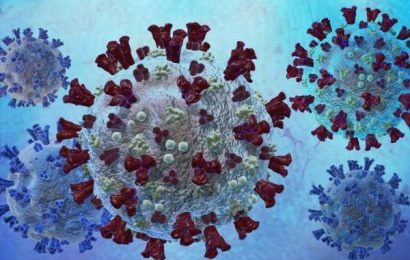
China imposed a lockdown Sunday on a major city far away from the epicentre of a coronavirus epidemic, as its death toll from the disease soared to 304 and the first foreign fatality was reported in the Philippines.
The events added to deepening concerns about the potential for the virus to spread, as more governments around the world closed their borders to people from China.
Since emerging out of the central Chinese city of Wuhan late last year, the coronavirus has infected nearly 14,500 people across China and reached 24 countries.
Many of the infections overseas have been of people who had travelled from Wuhan, an industrial hub of 11 million people, or surrounding areas of Hubei province.
The person who died in the Philippines was a 44-year-old man from Wuhan, according to the World Health Organization, which has declared the epidemic a global health emergency.
China has embarked on unprecedented efforts to contain the virus, which is believed to have jumped to humans from a Wuhan animal market and can be transmitted among people in a similar fashion to the flu.
Lockdowns
Those efforts have included extraordinary quarantines in Wuhan and surrounding cities, with all transport routes out banned, effectively sealing of more than 50 million people.
But 10 days after locking down Wuhan, authorities on Sunday announced similar draconian curbs on people movement in Wenzhou, 800 kilometres (500 miles) away).
Wenzhou is a coastal city of nine million people in Zhejiang province, part of the eastern industrial heartland that has powered China’s economic rise over recent decades.
Only one resident per household is allowed to go out every two days to buy necessities, and 46 highway toll stations have been closed, authorities announced.
The city had previously closed public places such as cinemas and museums and suspended public transport.
Zhejiang has 661 confirmed infections, with 265 of those in Wenzhou, according to the government.
This is the highest tally for any province in China after ground-zero Hebei.
Closing borders
Internationally, governments continued their efforts to erect virtual borders against the disease.
The United States, Australia, New Zealand and Israel have banned foreign nationals from visiting if they had been in China recently, and warned their own citizens from travelling there.
Mongolia, Russia and Nepal closed their land borders, while Papua New Guinea went as far as to ban anyone arriving from ports or airports across Asia.
The news of the man’s death in Manila on Sunday was released shortly after the Philippines said it would immediately halt the arrivals of any foreign travellers from China.
The number of countries reporting infections rose to 24 after Britain, Russia and Sweden this weekend confirmed their first cases.
More deaths
The death toll in China climbed to 304 on Sunday after authorities reporting 45 new deaths from the previous day.
There were 2,590 new confirmed cases in China, bringing the total to nearly 14,500.
The number of confirmed infections in China is far higher than the Severe Acute Respiratory Syndrome outbreak of 2002-03.
SARS, which is caused by a pathogen similar to the new coronavirus and also originated in China, killed 774 people worldwide—most of them in mainland China and Hong Kong.
Holiday ending
The emergence of the virus came at the worst time for China, coinciding with the Lunar New Year Holiday when hundreds of millions travel across the country in planes, trains and buses for family reunions.
China had also cut long-distance bus routes and postponed thousands of trains trips to reduce travel across the country.
The holiday was scheduled to end on Friday, then extended by three days to give authorities more time to try and deal with the crisis.
With many people due back at work on Monday, people were starting to return on planes and trains over the weekend wearing face masks.
Custom authorities had ordered temperature checks at all exit-entry points in Beijing, according to state media.
Returning travellers were being checked and registered at residential compounds, while fever checks were in place in subway stations, offices and cafes.
One 22-year-old arriving at a Beijing train station from northeastern China said her family had urged her to delay her return.
“But I was worried it would affect my job,” she said.
Security guard Du Guiliang, 47, said he would be starting back at work in Beijing on Sunday, after returning from northeast Liaoning province.
“Many colleagues (from Hubei) couldn’t come back. Now, those who work the day shift at our company have to do the night shift as well,” he said.
But many businesses were to remain closed for at least another week, while some major cities including Shanghai had also extended the holiday.
Source: Read Full Article


